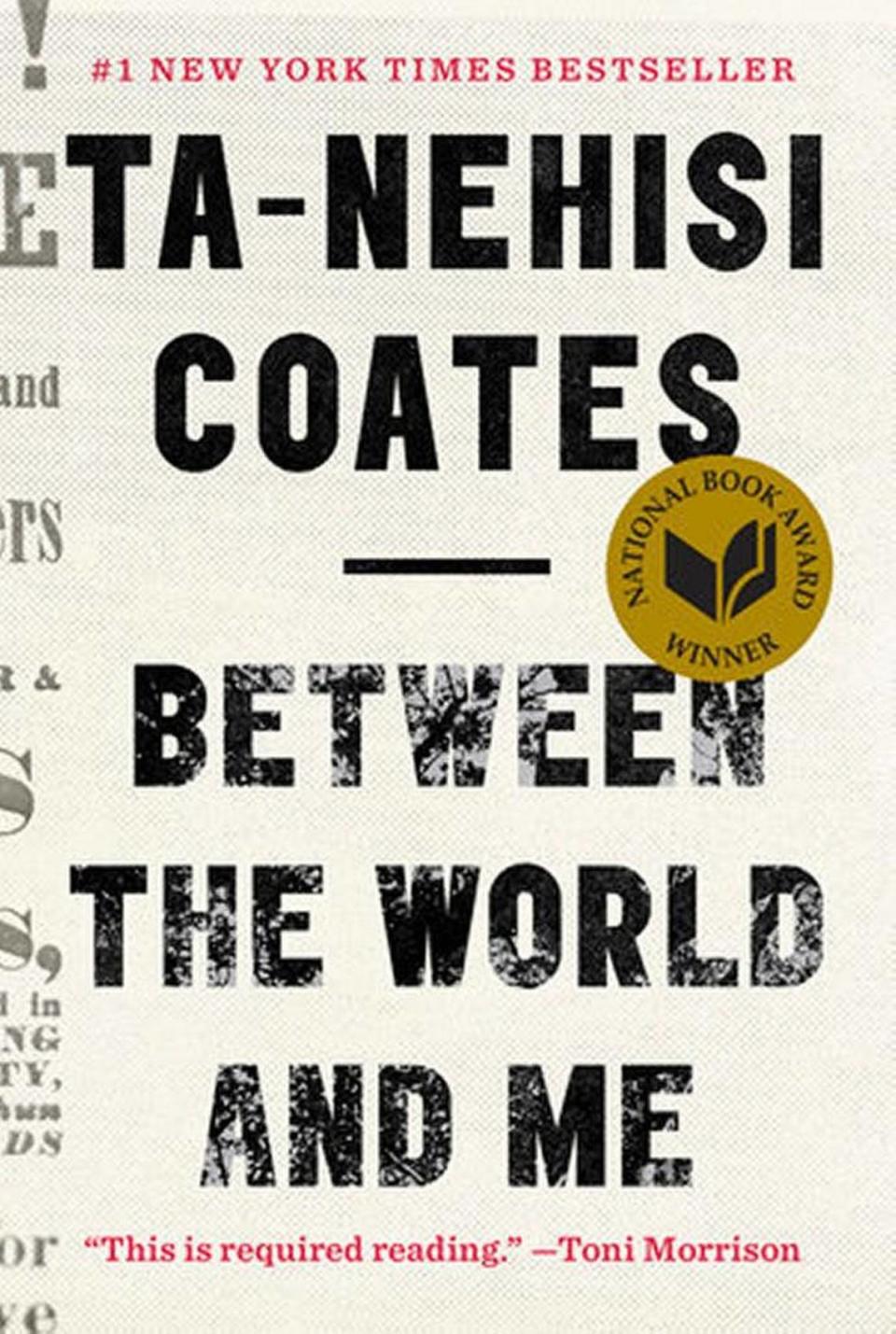Midlands teacher’s lesson on racism halted after complaints, citing state law
- Oops!Something went wrong.Please try again later.
A Midlands school district shut down classroom discussion of a book on racism after complaints that it violated a state law prohibiting instruction on controversial topics related to race.
Students in an advanced placement language arts class at Chapin High School last spring were scheduled to read “Between the World and Me,” a 2015 memoir by writer Ta-Nehisi Coates, recapping American racial history and its impact on his life growing up Black in inner-city Baltimore. The memoir was written in the form of a letter addressed to Coates’ teenaged son.
“This book is studied as part of the argument essay unit for the AP Lang exam,” teacher Mary Wood wrote regarding the book’s inclusion in her lesson plan, one of several documents related to the class released by the Lexington-Richland 5 school district as part of a freedom of information request. Elsewhere, Wood says she taught the same book the previous year without any controversy.
The lesson plan released as part of the documents request prompts students to analyze and respond to some of Coates’ arguments in the book. Instructions include “Describe Coates’ primary statement regarding identity and your position about his argument,” “Describe your understanding of systemic racism,” and “Do you think racism is a pervasive problem in America? Why or why not?”

But the class didn’t get far in its assessment of the National Book Award winner, after at least some students expressed discomfort with two short videos played in class as preparation for the book: “The Unequal Opportunity Race” and “Systemic Racism Explained.”
“Hearing (Wood’s) opinion and watching these videos made me feel uncomfortable,” one unnamed student wrote to a school board member after the class. “I actually felt ashamed to be Caucasian... These videos portrayed an inaccurate description of life from past centuries that she is trying to resurface. I don’t feel as though it is right because these videos showed antiquated history. I understand in AP Lang, we are learning to develop an argument and have evidence to support it, yet this topic is too heavy to discuss.”
Another student wrote that Wood prefaced the lesson with “hopefully I don’t get fired for this.”
“I was incredibly uncomfortable throughout both videos, and was in shock that she would do something illegal like that,” the student wrote, adding parenthetically “I am pretty sure a teacher talking about systemic racism is illegal in South Carolina.”
For the 2022-23 school year, S.C. lawmakers added a proviso to the state budget that prohibited state money from being spent to teach various ideas related to race, including “an individual, by virtue of his race or sex, is inherently racist, sexist or oppressive,” “bears responsibility for actions committed in the past by other members of the same race or sex,” or that “an individual should feel discomfort, guilt, anguish, or any other form of psychological distress on account of his race or sex.”
The motion was passed to combat supposed “critical race theory” in South Carolina schools. Critical race theory is an academic framework for studying how the development of laws and public policy contribute to racial inequity. The theory is normally used in high-level university courses, but critics have applied the term to almost any discussion of race or racism in K12 schools.
Last year, members of the conservative Freedom Caucus in the S.C. Legislature filed a lawsuit against the neighboring Lexington 1 school district for allegedly violating the prohibition. That lawsuit remains in the courts.
In Wood’s case, the released documents include a page labeled a “script” for Chapin Assistant Principal for Instruction Melissa Magee for reviewing the class with Wood after receiving the complaints.
“We want to support you and set you up for success, but this assignment could run in conflict with proviso and policies,” the document says. “As you may be aware, there is proposed legislation up for discussion and voting currently. We need to cease this assignment.”
Wood, however, defended the lesson in a letter she later wrote to district Superintendent Akil Ross and the school board. She points out that the course description states that “Fair representation of issues and peoples may include controversial material.”
“Since AP students have chosen a program that directly involves them in college level work, participation in this course depends on a level of maturity consistent with the age of high school students who have engaged in thoughtful analyses of a variety of texts,” the description says. “The best response to controversial language or ideas in a text might well be a question about the larger meaning, purpose, or overall effect of the language or idea in context.”
Wood complained in the letter of a “lack of clarity” around what the district expects from teachers, and that the school’s reaction “undermined my classroom integrity and has affected my personal life.” She said some of the responses she’s gotten to her lesson have made her feel unsafe and even caused her to install a security system at her home.
“In this culture, EVERYTHING may be considered controversial,” she said. “To prevent conversations about experiences which exist outside of heterosexual, caucasian norms is both biased and discriminatory and completely antithetical to the development of critical thinking and civil discourse, which is the entire point of an AP Lang course.”
Contacted by The State for this story, Wood said she fears the policing of teacher’s lessons will end up pushing more teachers out of the profession, which already suffers from a shortage of people going into teaching.
“There is an odd juxtaposition where we are trusted to protect students from armed intruders but subject to ridicule from community members who proclaim we are indoctrinating children,” Wood said. “Until we cease to lend a space for vilifying teachers, more of us will leave the classroom.”

